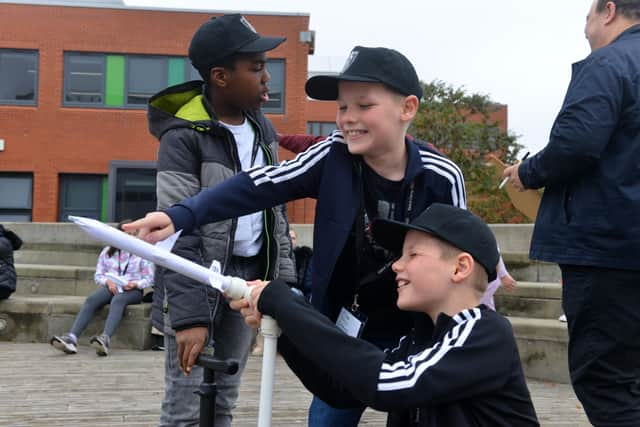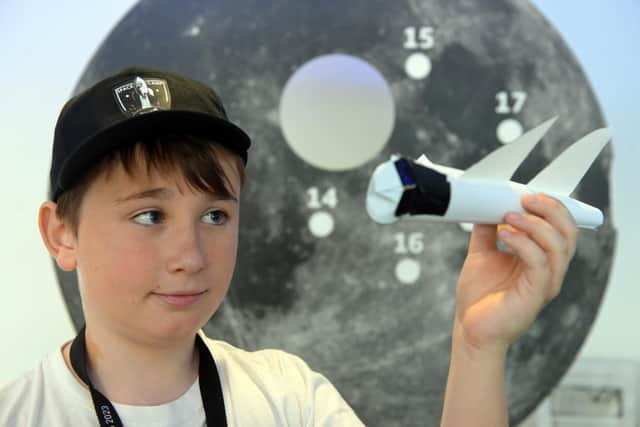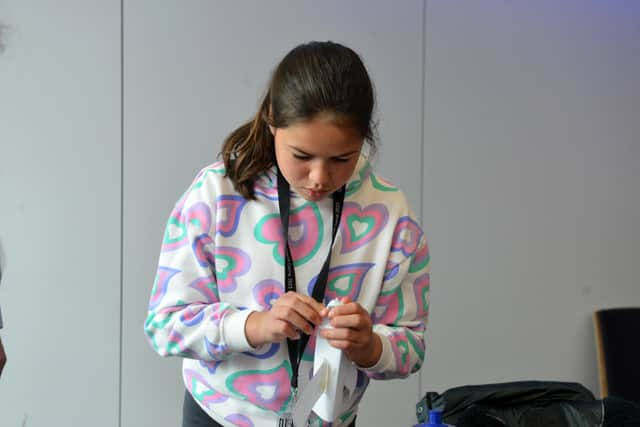Sunderland space camp helps students reach for the stars
and live on Freeview channel 276
School pupils have been reaching for the stars at a special event in Sunderland.
The spacecamp, held at the University of Sunderland’s city centre Hope Street X-change, is giving year six and 12 pupils a chance to get hands-on and learn more about career opportunites in the exploration of space.


Advertisement
Hide AdAdvertisement
Hide AdLeading international aerospace and defence company Lockheed Martin has joined forces with the National Space Academy to host the evet from today, Monday, October 23, to Friday, October 27.
Students from schools including Hill View Junior Academy and St Leonard’s Catholic School, Durham, have been taking part , making their own rockets and hearing from professionals working in the industry.
The space camp is centred around three key themes – sustainability in space, innovation and entrepreneurship and the career pathways in the UK space sector.


Students were given a set budget to spend on materials and fuel, with the aim of developing a comprssed air rocket that could travel the furthest.
Advertisement
Hide AdAdvertisement
Hide AdLockheed Martin is also working closely with Northumbria University on a number of space-related initiatives.
Last July, the company announced a collaboration with the higher education institution that includes an initial planned investment of up to £630,000 to support the development of skills, research and technology across the region.
The Sunderland Space Camp is one of just two being organise nationwide, with the second one taking place in London in February.


Lockheed Martin’s Trip Carter said such events were vital for capturing the imagination of the next generation of aerospace engineers.
Advertisement
Hide AdAdvertisement
Hide Ad“Today is all about energising kids to go into space, not necessarilty leaving our planet but working in the space industry, working for, perhaps, the UK Government in a space capacity and understanding that you don’t really have to be a rocket scientist to do rocket science,” he explained.
“There are so many things we not only want to do, we are committed to doing. We are committed to going back to the moon, we are committed to going to Mars.
“And in order to achieve those things and have a sustainable presence on both those bodies, we need the best minds in science and engineering.”
Comment Guidelines
National World encourages reader discussion on our stories. User feedback, insights and back-and-forth exchanges add a rich layer of context to reporting. Please review our Community Guidelines before commenting.